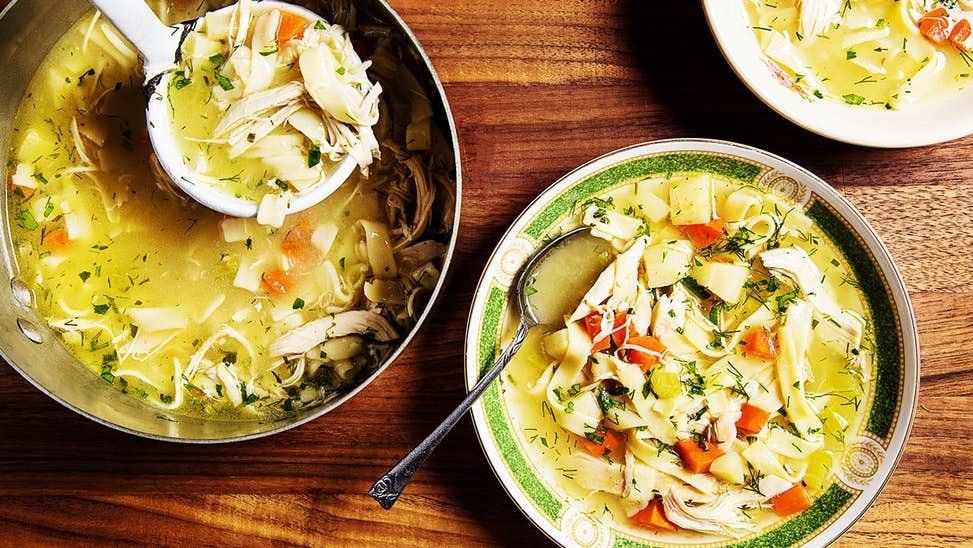The science behind chicken soup
I recently shared my favorite chicken soup recipe , but with cold & flu season in full force now, I really want to explain the science behind it all. The reality is that you don’t need a flu shot to stay well in the winter (
), and all of those cold and cough medications only address your symptoms. What you do need is to keep hydrated and nourish your body with lots of good-for-you foods. Chicken soup can help you do that so you’ll feel better faster.
Chicken soup is literally a bowl of nutrients. That comes in handy when eating solid foods is more than you can stomach. But it has to be the right type of chicken soup. Chicken soup out of a can is of no use. Your favorite chinese takeout spot belongs on the no-go list as well. Both of these soups are packed with sodium (among other things.) Sodium will dehydrate you, which is counter productive. Instead, reach for a fresh one that includes lots of vegetables. You’ll benefit from many vitamins and minerals this way. For example, carrots contain vitamin A, which plays a role in your immune system response.
But let’s take a look at some of the therapeutic ingredients as well. I’m talking about things like garlic, ginger, and onions. They’re hardly ever considered as anything more than a flavor enhancer, but they do so much more. Garlic contains antiviral properties. That’s why eating whole cloves (although hard to handle for many) is so beneficial when you’re feeling under the weather. Fresh ginger is effective against respiratory illnesses like colds. Onions are another great choice. Like ginger, they contain a compound with antioxidant effects that can attack a virus.
And let’s not forget about cold and flu symptoms like runny noses, sore throats, headaches, and nasal congestion, etc. Chicken soup addresses those as well. Because it’s so warm and soothing, it can provide all kinds of relief. Something else to be mindful of is the steam that a warm chicken soup provides. It can open up your airways, making it easier to breathe and can also help relax your muscles.
So if you’re feeling down this cold and flu season, eat your chicken soup.



